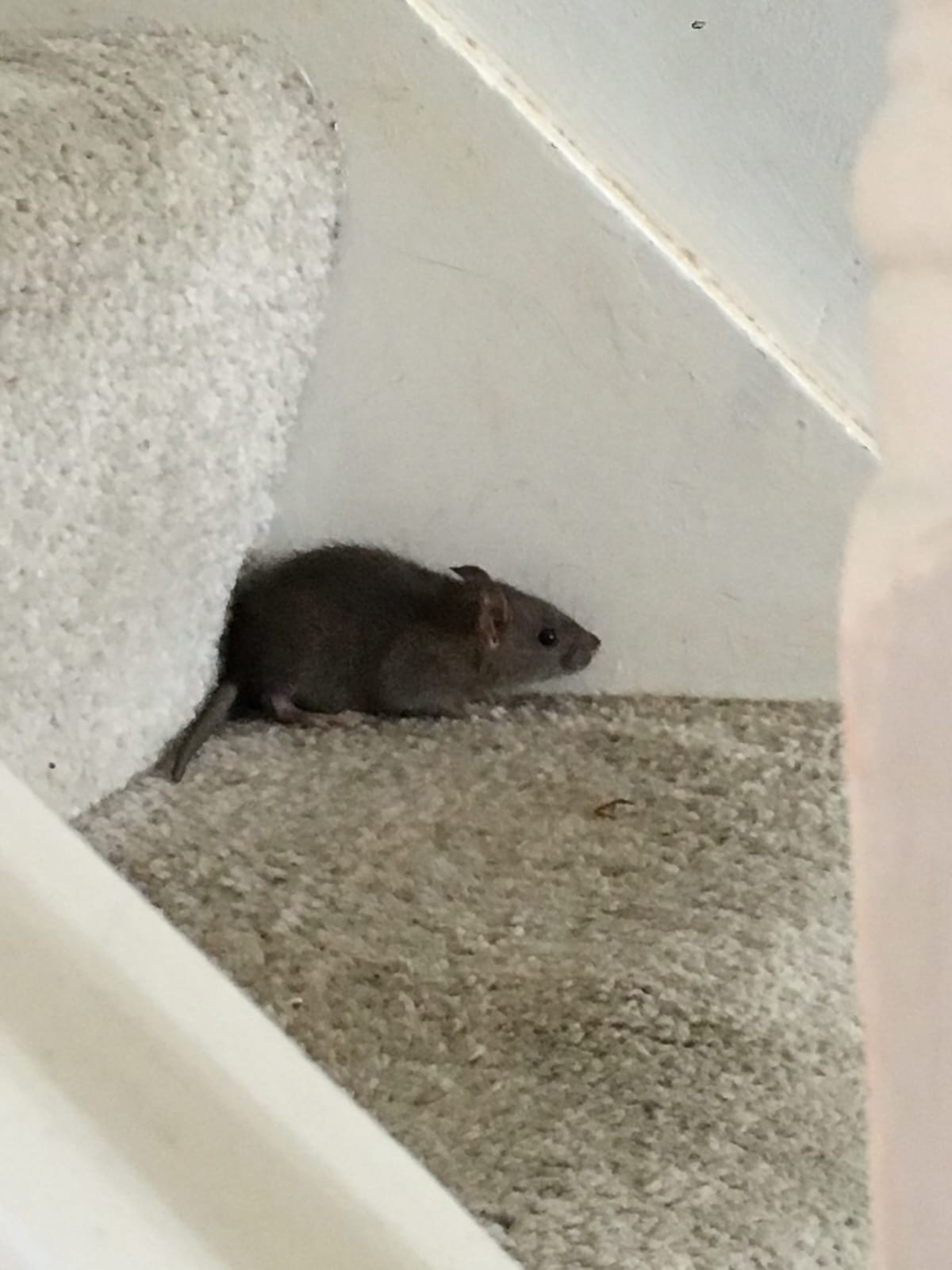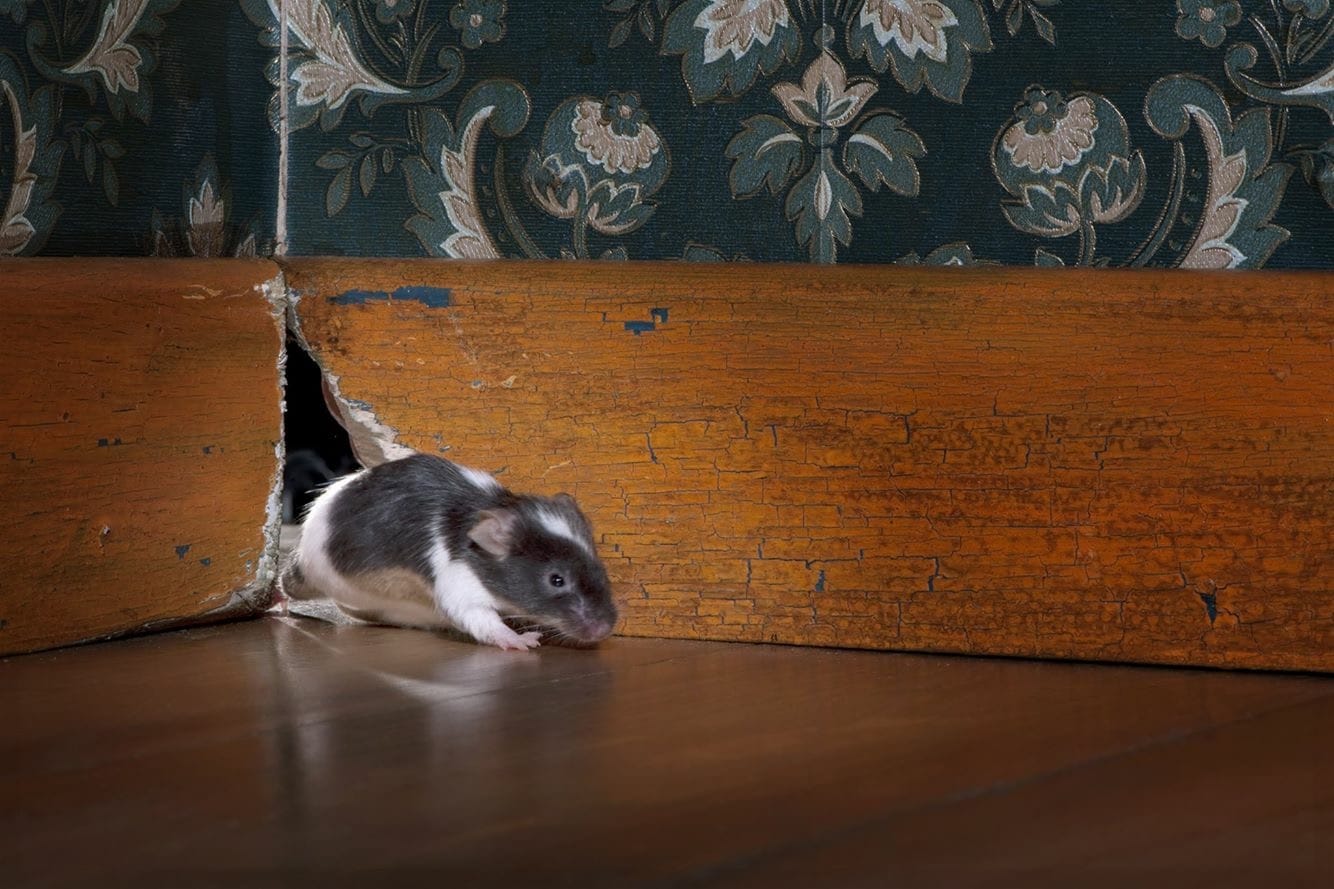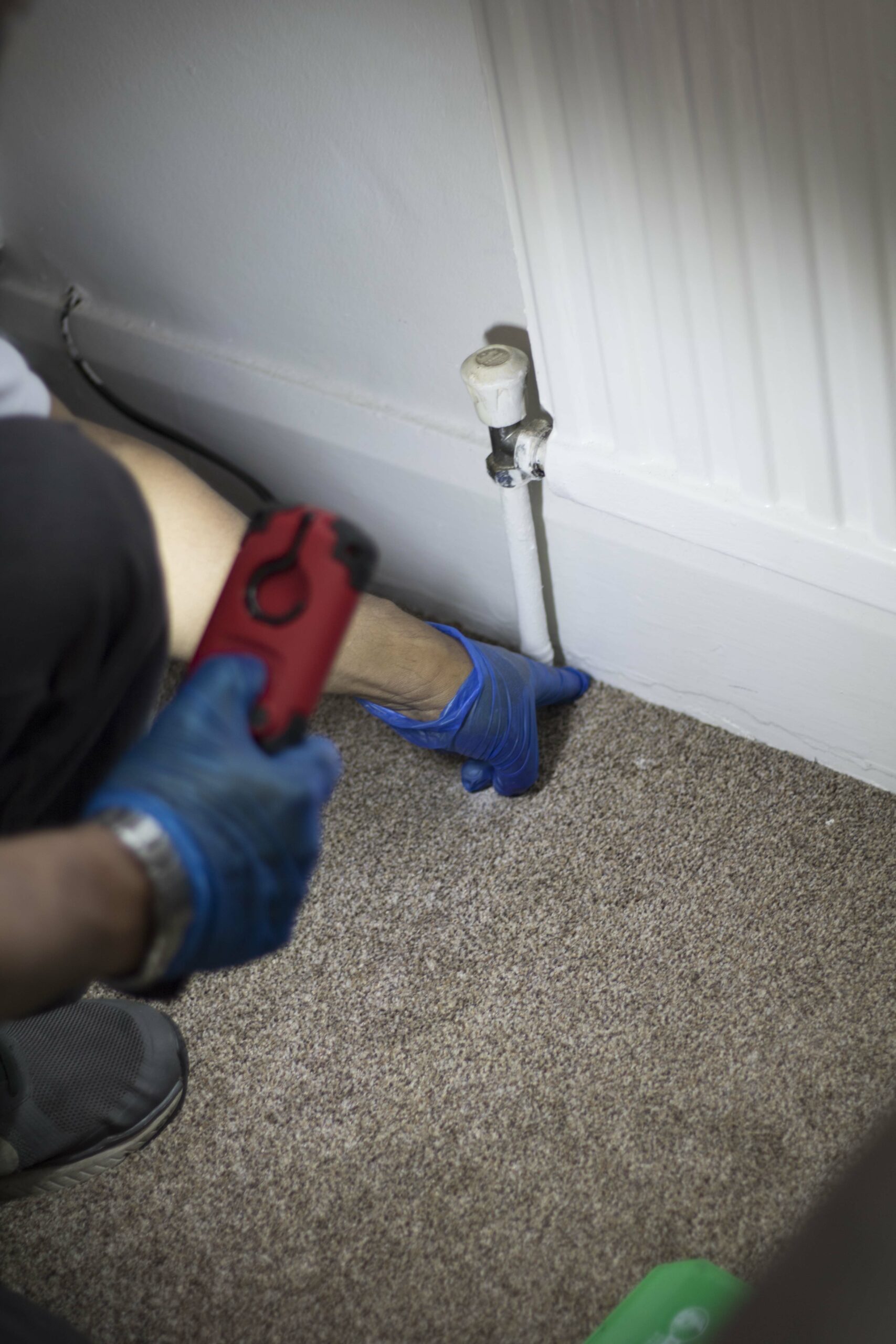Guaranteed rat extermination services
- 24/7 emergency rat control services
- Professional rat removal.
- Providing proofing and prevention services against rats
- A same-day rat removal service is available

The Process to get rid of Mice
Each rat removal service starts with a thorough inspection. The rat exterminator will first inspect your property to identify the level of infestation. They’ll also look for possible entry points that need to be sealed.
The pest technician will then set up live-catch traps with bait strategically around your home and out of children's and pets’ reach. Our rat control service includes the blocking and sealing of small holes and cracks that rats have used to enter.
We do a full inspection of the entire premises to ensure we eradicated all the pest, wherever they are hiding. The Inspection will also ensure we plan preventative measures so this never happens again.
Upon completion of the pest control service, you’ll receive a detailed report that you can use for future reference, as well as expert proofing advice and tips on how to avoid future rat infestations.




Hire a skilled exterminator near you for rat removal

Rats, like mice, are incredibly intelligent creatures that thrive in both home and commercial environments. And while they can make adorable pets, they can also be abhorrent pests, as a rat infestation can be detrimental to both you and your property.
Just have a look below at how harmful rats can be to your health and property alike once they move indoors to seek shelter and hide:
- Rats use many different materials to create their nests, meaning wood, cloth, books and insulation can be damaged.
- They like to gnaw on electrical wires, which can cause short circuits and fire hazards.
- Rats contaminate food which hasn’t been correctly stored and can cause serious infections with their bites.
- They can grant secondary access to other pests, like cockroaches and ants and are known carriers of parasites like fleas.
Before and after your rat treatment

- Remove any rat baits or traps you’ve placed yourself.
- Give your home a thorough clean and declutter as much as you can, as this will provide fewer hiding places for the rats.
- Remove any rubbish that can serve as a food source for rats and make sure your bins are closed with tight-fitting lids.
- Deny rats access to your food (grain products, bread, dry fruits, etc.) by ensuring that it's stored properly.
- Remove any unused items from your garden and cut down overgrown vegetation.
- Don’t attempt to replace the bait in the rat traps yourself.
- Stay vigilant for any signs and evidence of further rat activity (footprints on dusty surfaces, droppings in corners, etc.) and contact us for a follow-up visit to be on the safe side.
- Keep an eye out for new potential entry points that a rat could use and block them in a timely manner.
- Keep pet foods stored properly, and remove their food and water bowls after use.
- Make sure to address leaks and plumbing issues, so rats don’t get easy access to water.
- Don’t feed birds by throwing bread crumbs and seeds on the ground.
- Call us for help if you suspect that you’ve got dead rats in the traps, behind walls or under the floorboards.
Rat Control FAQ
Q: How do I get rid of rats permanently?
Q: What are the signs of having rats?
Q: What attracts rats to your house?
Q: What is the most effective rat control?
Q: How much is pest control for rats?
Q: Do rats smell?
Learn more about rats
Check what DIY methods to try when you want to repell rats from your house. How experts deal with them and what are the pros and cons of each method?
Check what are the main signs of rat infestations, what attracts them to your house, what risks they hide and how to inspect for rats.
Check why rat prevention is important! Also, learn what attracts rats to your house and how can you keep them away.
